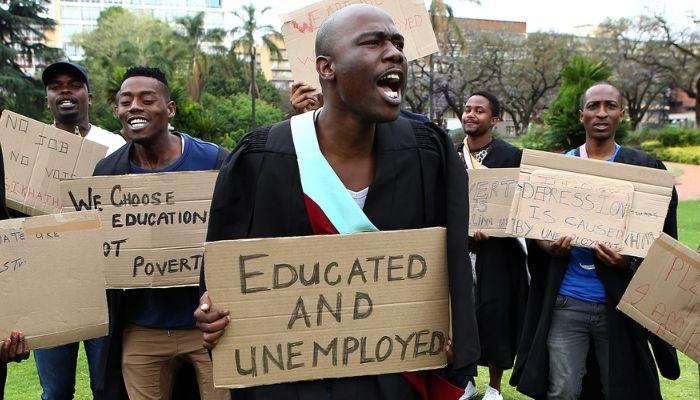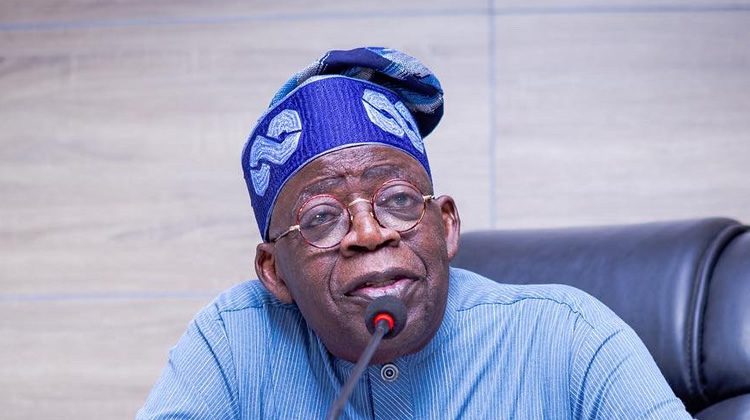What could be the long-term fix for Nigeria’s forex crisis?
By Abayomi Odunowo.
As Nigeria continues to grapple with a forex crisis that has plagued the country for years, it has become increasingly clear that a permanent solution lies in taking a multi-pronged approach that addresses the root causes of the problem. Financial experts agree that simply patching up the issue with short-term fixes will not suffice, and that a comprehensive strategy is needed to ensure long-term stability.
One of the key measures that a lot experts have recommended is the diversification of the economy. Nigeria has long been heavily reliant on oil revenue, with the sector accounting for a significant portion of the country’s GDP. However, the volatility of oil prices in the global market has left Nigeria vulnerable to economic shocks, such as the forex crisis. To reduce this vulnerability, Nigeria needs to develop other sectors such as agriculture, tourism,manufacturing, and services to build a strong export base. By expanding these sectors, Nigeria will reduce its dependence on oil revenue and create a more diversified and resilient economy.
Another crucial measure is by building up our foreign reserves. Foreign reserves play a key role in stabilizing the currency by providing a buffer against fluctuations in the forex market. To build up reserves, the government should focus on increasing non-oil exports and attracting foreign investment. By boosting exports and attracting foreign investment, Nigeria can enhance its foreign exchange earnings and strengthen its ability to defend the currency.
In addition to diversifying the economy and building up reserves, experts emphasize the importance of fiscal discipline. Adopting prudent spending, appropriate fiscal controls, and transparency in budgeting can improve the economy and help address the root causes of the forex crisis. By implementing measures to curb wasteful spending and improve financial management, Nigeria can strengthen its fiscal position and create a more stable economic environment.
The permanent solution to Nigeria’s forex crisis requires a multi-pronged approach that addresses the root causes of the problem. By diversifying the economy, building up foreign reserves, and adopting fiscal discipline, Nigeria can lay the foundation for long-term stability and economic growth. While implementing these measures may require time and effort, the benefits of a stable and resilient economy will far outweigh the challenges. Nigeria has the potential to overcome the forex crisis and emerge stronger and more prosperous than ever before. In addition to this.
Forex policy reform is crucial for any country looking to stabilize its economy and encourage sustainable growth. One of the key issues that policymakers need to address is the existence of a parallel market for foreign exchange. This parallel market often distorts the forex market, leading to fluctuations in exchange rates and creating uncertainty for investors.
To tackle this issue, governments can implement measures such as tightening regulations on forex transactions, cracking down on illegal forex dealers, and improving transparency in forex trading. By addressing these issues, policymakers can help eliminate distortions in the forex market and promote a more stable and predictable exchange rate.
Another important aspect of forex policy reform is debt sustainability. Many countries rely on borrowing funds from foreign sources to finance their development projects. However, if these funds are not managed properly, they can lead to unsustainable levels of debt that burden future generations. Therefore, governments should work towards prudent and sustainable debt management, ensuring that borrowed funds are used for sound economic projects that generate income for repayment and contribute to the country’s overall development.
In addition to debt sustainability, boosting domestic production is another key component of forex policy reform. Enhancing domestic production, particularly in sectors such as petroleum, can help reduce reliance on imported goods and ease the pressure on the forex exchange market. By increasing domestic production, countries can stimulate economic growth, create jobs, and reduce their dependence on foreign exchange.
Moreover, market confidence plays a crucial role in stabilizing the exchange rate. Market participants need to have confidence in the country’s economic policies and stability in order to invest in the country. Foreign investors look for stability and transparency in the forex market, while local investors need assurances that their investments will be protected. By implementing reforms that promote market confidence, policymakers can encourage investment and help stabilize the exchange rate.
Since forex policy reform is essential for promoting economic stability and growth. By addressing issues such as the existence of a parallel market, debt sustainability, boosting domestic production, and improving market confidence, governments can create a conducive environment for sustainable economic development. It is important for policymakers to work towards implementing these reforms to ensure a stable and thriving economy for their country.
Security and infrastructure are crucial components of a country’s economic development. Without a secure environment and reliable infrastructure, businesses struggle to operate efficiently, hindering growth and development. Enhancing the security network and addressing infrastructural deficits can facilitate domestic production and reduce import dependence, ultimately leading to a more robust economy.
One area where security and infrastructure play a critical role is in crude oil production and refining. Nigeria, for example, is a major oil producer, but struggles with oil theft and outdated refineries. By stepping up crude oil production and addressing issues of oil theft, the country can increase its output and reduce the need to import petroleum products. Additionally, revamping moribund refineries through private-public partnerships can ensure that these facilities are operating at full capacity, further reducing the reliance on imported oil products. Not only does this help conserve foreign exchange, but it also contributes to a reduction in trade deficits, ultimately leading to a more stable economy.
Another way that security and infrastructure can support economic development is through the promotion of foreign direct investment and diaspora remittances. By encouraging the inflow of foreign direct investment, countries can benefit from new technologies, expertise, and capital that can help spur economic growth. Additionally, diaspora remittances can provide a stable source of income that helps stabilize the foreign exchange market. Both of these sources of funding can help countries weather economic uncertainties and support ongoing development efforts.
Security and infrastructure play a vital role in supporting economic development. By addressing issues related to security and infrastructure, countries can enhance domestic production, reduce import dependence, and attract foreign investment. Promoting a secure environment and reliable infrastructure not only benefits businesses operating in the country but also contributes to overall economic stability and growth. It is essential for governments to prioritize investments in security and infrastructure to support long-term economic development goals.
Combating dollar racketeering has become a pressing issue in Nigeria, as the country grapples with a forex crisis that has put immense pressure on the naira. The Economic and Financial Crimes Commission’s (EFCC) 7,000-man special task force is one of the key efforts to clamp down on illegal activities that have been contributing to the instability in the foreign exchange market. By cracking down on dollar racketeers, the government can prevent market manipulation and stabilise the value of the naira.
In addition to law enforcement measures, digitalization of the FX market is another crucial step towards addressing Nigeria’s forex crisis. The entry of more financial institutions into the market, along with their collaboration to digitalize foreign exchange transactions, can bring ease, transparency, and efficiency to currency trading. This can help boost the value of the naira and increase investor confidence in the market.
By implementing these measures, Nigeria can address the root causes of its forex crisis and achieve a sustainable solution to its currency woes. Clamping down on dollar racketeering will help eliminate illegal activities that distort the foreign exchange market and negatively impact the value of the naira. The EFCC’s special task force plays a vital role in this effort by investigating and prosecuting individuals involved in illegal forex activities.
Digitalization of the FX market will also play a key role in stabilising the value of the naira. By creating a more efficient and transparent trading environment, financial institutions can facilitate smoother currency transactions that benefit both investors and the economy as a whole. This digitization can help increase liquidity in the FX market, making it easier for businesses to access foreign currency and conduct international trade.
Overall, a combination of cracking down on illegal activities such as dollar racketeering and digitalizing the FX market will further help Nigeria address its forex crisis and achieve a more stable currency. By taking decisive action to combat market manipulation and enhance transparency in currency trading, the government can create a more favourable environment for both domestic and international investors. This, in turn, will lead to a stronger naira and a more resilient economy in the long term.





